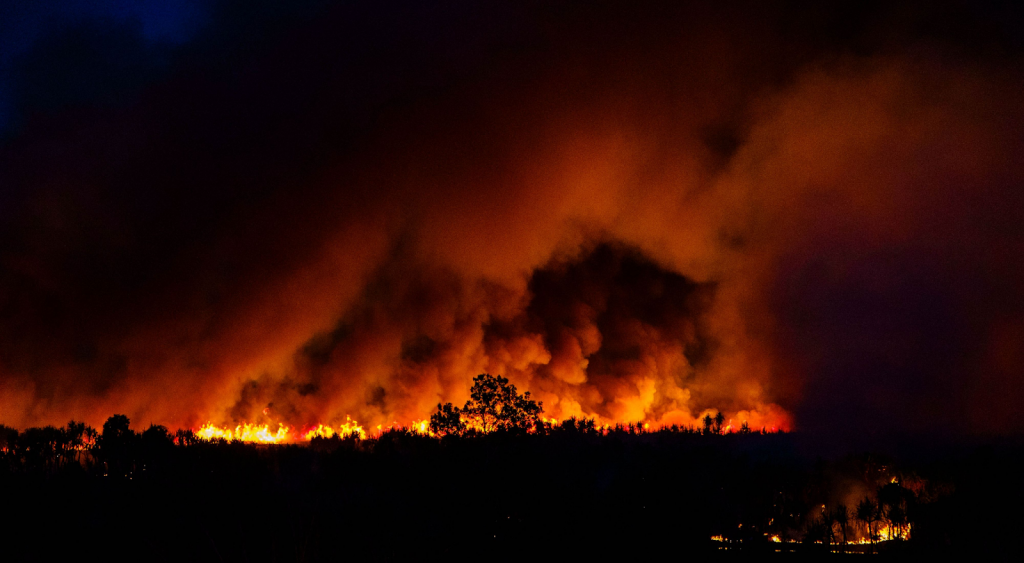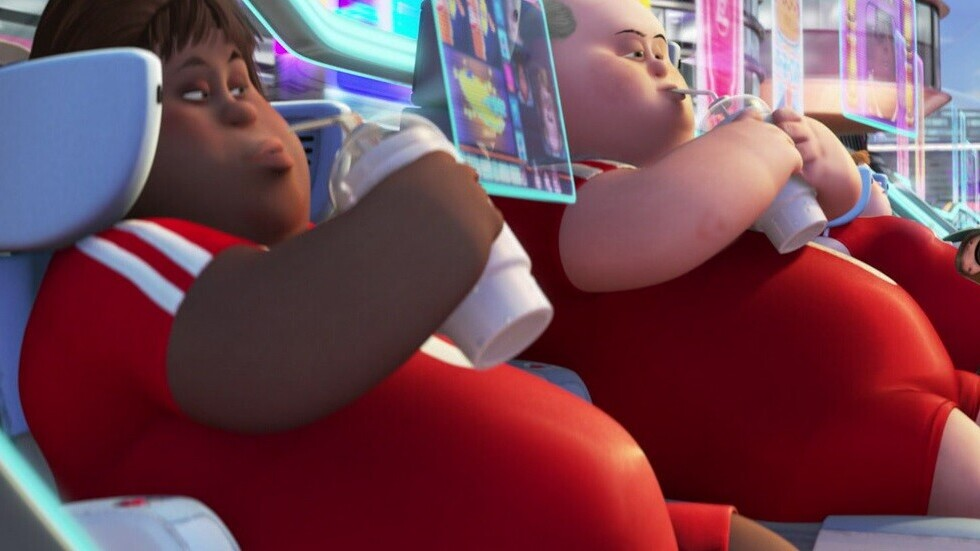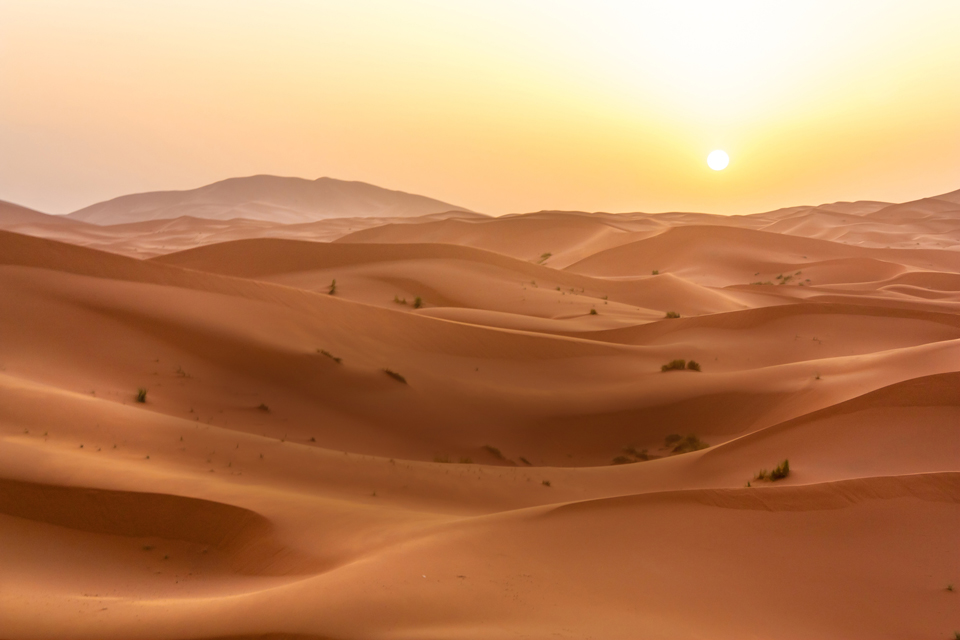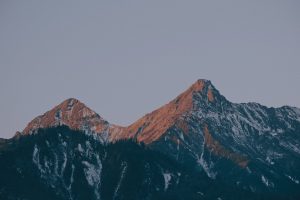The Lost Sunnah : Optimism in an Age of Crisis
- David Wong
- December 16, 2021
- Islam

Which disaster will we be worrying about today?
Will it be a humanitarian one? The state of the ummah today needs no elaboration. Yemen, Syria, Kashmir, Iraq, Burma, East Turkestan, Palestine, The Caucasus, Bosnia – no land of ours has escaped this necrosis; it affects every cell in this body we share as Muslims. Our recent colonial subjugation, corrupt statesmen, and our crippling poverty worldwide serve as constant reminders to this deep-rooted disease that has stunted our moving forward.
If injustice doesn’t do it for you, maybe it’s the imminent climate emergency? Governments twiddle their thumbs while we threaten to unleash a climate holocaust on the third world by the end of the century. Supplies of fresh water dwindle while Nestle and Coca Cola expunge billions of litres of groundwater to sell to us in plastic bottles, leaving behind parched, lifeless land, sinking cities, and communities struggling to survive. Our air is poisoned, our rain is acidic, we drive biomass and sea-life to extinction to factory-farm poultry chock full of growth hormones in cages, willingly creating breeding grounds for the next COVID, all for the sake of our $2 Chicken ‘n’ Cheese at McDonalds.
All of that is pretty scary. What about issues we have a little more control over, in our own communities? Not looking too great here either. Our young face challenges on all ends – growing up without knowing the basics of Islam, implicitly questioned about their every decision, by a world that has built higher than Babel, and with more grandeur than Maidan, which prides itself as being the end of history. On top of our community’s own issues with racism, domestic violence, drugs and pornography; politicians scapegoat us, and the state constantly tries to cast us in the shape of the ideal economic resource, putting in measures to monetize and track our every move, readying itself to project its LGBT ideology onto our children, and encouraging the boundless consumption that characterises our age. Given, all of this is if we have a community for much longer, since male fertility is looking like a big question mark beyond our generation.
Perhaps, most of all, it is our own failures, that eat away at us from deep within. Our wandering gazes. Our shameful assumptions of others. Our indifference to Allah’s commands. Our disappointing moments, where we turned away, where we didn’t speak up, where we were unfaithful to our values, hurtful to our loved ones.
Our powerlessness in the face of it all.
Coping Strategies
How do we handle this, given there seems to be no end in sight?
Resignation

Most of us have silently given up to the status quo. Unable to handle the constant stream of horrific news and worsening forecasts, people become desensitized. “I try not to think about it.” All our focus is directed to the one area we are forced to control – the daily struggle to earn money. We begin to see ourselves mostly as our job and our net worth. Think about the first few questions you ask someone at a party – “Where do you work?” is usually one of them.
Because they have nothing to do with how much money we earn, our beliefs and rituals are sidelined. They become not something we really believe in, but, aesthetics – another thing on display at the museum, kept in a glass box and viewed as a spectacle, but never something we truly live out. Being enthusiastic about your beliefs, or engaging with them, is seen as odd, especially if they don’t match those of the global consensus and aren’t ordained by society. Naturally, this means people will struggle to commit to, or have ownership of anything – there’s always a ringing doubt of “Well, everyone has their own truth, what if I’m wrong?” and “If they don’t make me money, what real value do these beliefs have for me?”
This constant negativity and insecurity carries over to our decision making. Any hope is a dangerous illusion. Always expect the worst. Have no expectation of any positive or worthwhile outcomes, always think of your effort as ultimately meaningless. And this is the religious crowd.
Outrage

In his book Capitalist Realism, Mark Fischer makes an interesting point about the nature of protest in the modern age, using Disney Pixar’s Wall-E (2008) as an example¹:
“The film shows an earth so despoiled that human beings are no longer capable of inhabiting it. We’re left in no doubt that consumer capitalism and corporations – or rather one mega-corporation, Buy n Large – is responsible for this depredation; and when we see eventually see the human beings in offworld exile, they are infantile and obese, interacting via screen interfaces, carried around in large motorized chairs, and supping indeterminate slop from cups.”
“It seems that the cinema audience is itself the object of this satire, which prompted some right wing observers to recoil in disgust, condemning Disney/Pixar for attacking its own audience. But this kind of irony feeds rather than challenges capitalist realism. A film like Wall-E exemplifies what Robert Pfaller has called ‘interpassivity’: the film performs our anti-capitalism for us, allowing us to continue to consume with impunity.”
To simplify, as long as I believe that, deep down, something is bad, I can keep doing it.
Because I believe money is this fake thing that governments print at a whim, I’ve created a mental distance from the fact that ultimately I spend 40+ hours a week to make said money, and now I can keep doing my money-making guilt free. Because no country around the world is really Islamic, I can now live in the West and pay tax dollars to their militaries, no dramas. You get the idea.
This is the second reaction to the crisis – a perpetual sense of outrage. You’ll see this everywhere, especially in younger crews.
Every bint and akh, every SJW and incel, is on Twitter yelling about what they see as wrong with the world. Muslims being behind, having no iman or ‘ilm, Salafis, Liberal Muslims freemixing 24/7, the Saudis, the Iranis, the West – the list doesn’t end. This is our only way, in (nominally) democratic societies, of engaging with the problems we see: venting on social media, to people who already largely agree.
Don’t get me wrong; I am not advocating quietly sitting and accepting our humiliation – activism is necessary and worth applause. However, we need to be careful not to turn our protest into a coping mechanism: one that’s done solely to vent and create some mental distance. Protesting injustice has to be grounded in Islam. In other words – if my sharing posts and attending marches for Palestine isn’t backed up by a dua in tahajjud every night, does it really have any value? Am I just making noise, hoping some government or corporate kingpin pays attention to me, and eventually co-opts my cause for their economic interest? What baraka is there in that?
“If a man says the people are ruined, he is the most ruined among them” [Muslim]
In Light of the Seerah²

The problem with our version of resignation and slacktivism is that it is completely unprophetic, and it completely removes anything to do with Allah from the equation.
Our Prophet ﷺ was not a prophet of hum and glum. He was not sent to train people to become hopeless, miserable duds, God forbid.
In many ways, he suffered just like Muslims around the world do today. Orphaned from a young age, forced to leave his home as a refugee, reviled as a liar and soothsayer upon receiving revelation. His clansmen, the people he grew up around, who attested for years to his uprightness, were the very people who nearly drove the Muslims to extinction. He tied rocks around his stomach to relieve his pangs of hunger. He buried all his children except one with his own hands. At times, he lived through such poverty that he couldn’t find a funeral shroud to cover his companion with.
Despite ALL this suffering, his friends attested that they never saw anyone who smiled more than him. He gave time to everyone – from the emissaries of Quraysh to the Bedouin who urinated in his mosque. When the people of Ta’if hurled stones at him, and he bled so profusely that his shoes filled with blood, his prayer to Allah was:
إن لم يكن بك غضب علي فلا أبالي
So long as you are not angered with me, I do not mind.
It was his blessed gaze and nurture that created the Sahaba – his companions. Within a generation of his passing from the world, the Sahaba had reached the frontiers of North Africa, India and Constantinople. Entire families would separate, leave behind their homes, fight battle after battle for the sake of delivering the message. Muslims were in Switzerland within four centuries of the Prophet ﷺ, and Islam had reached Russia before Christianity.
Do you think Persia and Byzantium, the US and China of the time, would fall to a people who were thinking about how bad they had it for 23 years? How weak and poorly equipped they were militarily, and how they deserved a cruisey, relaxed life now that the tough times were over? Or were they worried about negotiating Arab normativity, toxic masculinity, micro-aggressions, or dismantling power structures? Yes, they did not hesitate to call out injustices, but were they tweeting about it in outrage? Were they publishing about it in obscure journals in language nobody would understand, rehashing the same problems over and over?
I hope you can see just how ridiculous that sounds. The point isn’t to denigrate the above – all of it is useful as a tool, but looking at our problems solely through these frameworks strips us of any meaningful free will. Someone growing up in such a level of poverty today would automatically be written off as a statistic – a likely victim of abuse doomed to reproduce it, destined to a life on the rungs of the socioeconomic ladder.
Where is the capacity for change that Allah has honoured Bani Adam with? Do I attach all ability to make myself better to some policy made by the state’s bureaucrats, or some historical distribution of wealth that I had no say in, or some random assignment of genes which set my characteristics, qualities and allotment at birth for eighty odd years? Where is Allah in this equation?
Our Prophet ﷺ was the flagbearer of hope in the most difficult circumstances. He is the one who taught us that there is no barrier between the prayer of the oppressed and Allah. He taught us that we should have a good opinion of Allah, because “I am as my servant thinks me to be.”[Bukhari & Muslim]] He taught us that if the Day of Judgement comes, and we have a date seed in our hands, to plant it – clearly, a date palm doesn’t grow in a day, but there is something of immense value in just the intention. Our untiring pessimism, no matter how well justified it is, is a form of rejecting our most potent weapon – our hands, raised to the sky in humble submission.
Two Hours
There’s a fantastic documentary by Vice, where they interview Eiffel 65 – the composers of the famous song Blue (Da Be Dee), which took the world by storm in the 2000’s, played billions of times by Eurodance DJ’s and early internet memers.³
What does that have to do with solving our list of existential threats? Nothing. But there was a great reflection by one of the songwriters in there.
“It’s not a question of – ‘we made a song in two hours.’ But, we make a life, that leads you, in those two hours, to make this song.”
Everyone has those two hours in their lives – those life defining moments that change the course of everything. Our prayer, dua, everyday acts of duty, worship and kindness, are all things that will shape our decisions in those two hours, where it’s impossible to fall back on anything else. So commit to changing whatever falls in your scope, however much you can. You’ll be surprised by what it’ll open up for you.
After all, win or lose, as the final Muslims in Andalusia used to say:
لا غالبَ إلا الله
“There is no victor except God.”
Footnotes
¹Fisher, Mark. Capitalism Realism, 2009, Zero Books.
²Note: this is my personal reading of the seerah. It’s not endorsed by a scholar, and I have no qualification to speak authoritatively about it. Anything you find dodgy in my take; run it by someone who knows their stuff. Happy to be corrected.
³Check around 23 minutes in.
Disclaimer: The views, opinions and conclusions presented in these pieces are strictly those of the authors. MYA does not necessarily endorse the personal views of the authors.

David Wong
'David Wong' is a recent Engineering graduate.
According to him, he's a 'casual reader' and a 'full time poser'.
Similar Posts You May Also Like

Tips to Build a Relationship with the Quran

Ignite

Top 10 Greatest Muslim Sport Stars of All Time
Like what you’re reading?
Subscribe to Muslim In Print and be the first to know when we post.





